Shirley Scott
An admirer of Jimmy Smith, Shirley Scott"Queen of the Organ" has been one of the organ's most appealing representatives since the late '50s. Scott, a very melodic and accessible player, started out on piano and played trumpet in high school before taking up the Hammond B-3 and enjoying national recognition in the late '50s with her superb Prestige dates with tenor sax great Eddie "Lockjaw" Davis. Especially popular was their 1958 hit "In the Kitchen." Her reputation was cemented during the '60s on several superb, soulful organ/soul-jazz dates where she demonstrated an aggressive, highly rhythmic attack blending intricate bebop harmonies with bluesy melodies and a gospel influence, punctuating everything with great use of the bass pedals.
Shirley Scott get'n down playlist
Shirley Scott (March 14, 1934 – March 10, 2002) emerged in the mid-1950's, the golden age of Hammond B3 organ jazz, with a quick, punchy sound that merged bebop, gospel and the blues. She had a lighter touch than Jimmy Smith, the leading organist in jazz, and relied on the blues less heavily than he did. Ms. Scott produced some of the most influential recordings in the smoother, more pop-oriented soul-jazz style.
Her recorded output was great, with more than 50 albums as a leader to her credit, most on the Prestige and Impulse labels. Her first recordings were with Davis, and she played with him on a number of classics, including his ''Cookbook'' albums and the 1958 hit song ''In the Kitchen.''
In 1960 she married Turrentine and made a number of albums with him over the next decade, including ''Soul Shoutin','' ''Blue Flames'' and ''Hip Soul.'' Their music together was often intense, but Ms. Scott also recorded plenty of easygoing tracks, often including show tunes and pop covers like the Beatles' ''Can't Buy Me Love.''
Scott wasn't as visible the following decade, when the popularity of organ combos decreased and labels were more interested in fusion and pop-jazz (though she did record some albums for Chess/Cadet and Strata East). But organists regained their popularity in the late '80s, which found her recording for Muse. A lifelong Philadelphian, Ms. Scott continued to play clubs in the city into the 90's, though she eventually switched to piano.
In the 90's she also began teaching jazz history and piano at Cheyney University in Cheyney, Pa., and worked as the musical director for Bill Cosby's short-lived television quiz show, ''You Bet Your Life.''
Though known primarily for her organ playing, Scott is also a superb pianist -- in the 1990s, she played piano exclusively on some trio recordings for Candid, and embraced the instrument consistently in Philly jazz venues in the early part of the decade. At the end of the '90s, Scott's heart was damaged by the diet drug combination, fen-phen, leading to her declining health. In 2000 she was awarded $8 million in a lawsuit against the manufacturers of the drug. On March 10, 2002 she died of heart failure at Presbyterian Hospital in Philadelphia.
In addition to Mr. Yancey, of Philadelphia, she is survived by her son Thomas, also of Philadelphia; three daughters, Lisa Turrentine, of West Chester, Pa., and Pamela and Nicole Turrentine, of Philadelphia; nine grandchildren; and two great-grandchildren.
Shirley Scott: Queen of the Organ
Shirley Scott Trio (w Harold Vick on tenor) - Don't Look Back - 1976 (Live video)
Shirley Scott in San Francisco
Shirley Scott & Clark Terry — "Soul Duo" [Full Album 1968]


































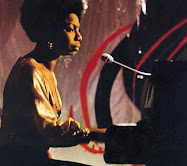

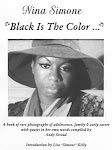

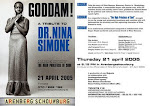

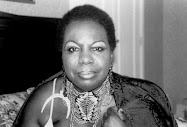






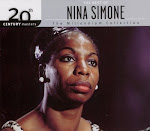



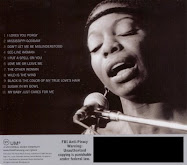
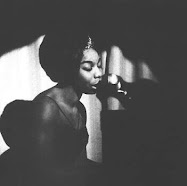

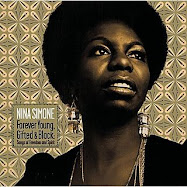









No comments:
Post a Comment